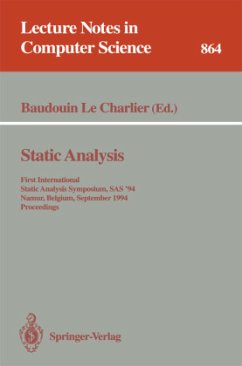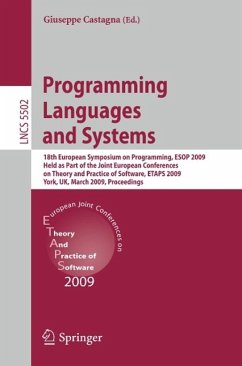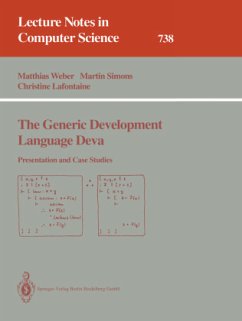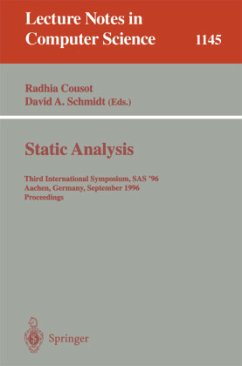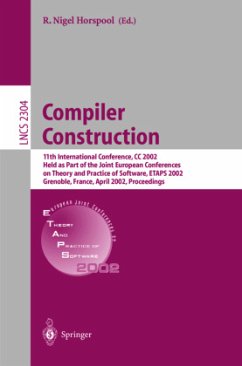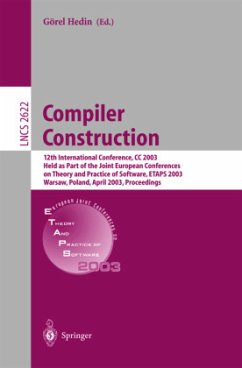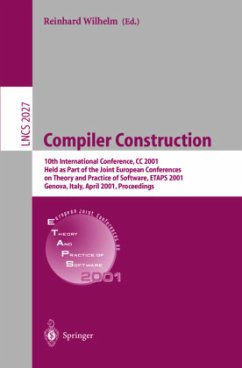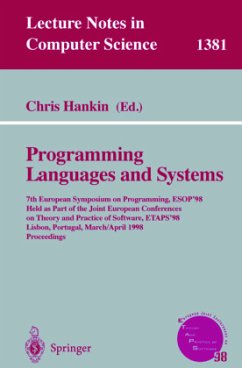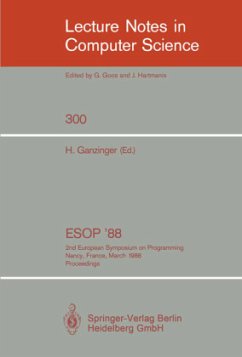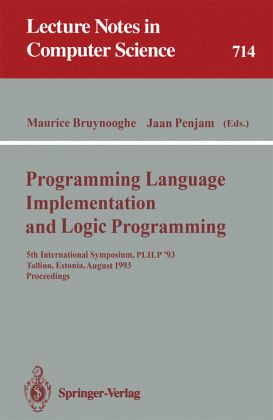
Programming Language Implementation and Logic Programming
5th International Symposium, PLILP '93, Tallinn, Estonia, August 25-27, 1993. Proceedings
Herausgegeben: Bruynooghe, Maurice; Penjam, Jaan
Versandkostenfrei!
Versandfertig in 1-2 Wochen
39,99 €
inkl. MwSt.

PAYBACK Punkte
20 °P sammeln!
This volume contains the proceedings of the FifthInternational Symposium onProgramming LanguageImplementation and Logic Programming (PLILP '93), held inTallinn, Estonia, in August 1993. The series of PLILPsymposiums was established to promote contacts andinformation exchange among scientists who share commoninterests in declarative programming techniques, logicprogramming, and programming languages imnplementation.Researchers from the fields of algorithmic programminglanguages as well as logic, functional, object-oriented, andconstraint programming constitute the audience of PLILP.The volume c...
This volume contains the proceedings of the FifthInternational Symposium onProgramming LanguageImplementation and Logic Programming (PLILP '93), held inTallinn, Estonia, in August 1993. The series of PLILPsymposiums was established to promote contacts andinformation exchange among scientists who share commoninterests in declarative programming techniques, logicprogramming, and programming languages imnplementation.Researchers from the fields of algorithmic programminglanguages as well as logic, functional, object-oriented, andconstraint programming constitute the audience of PLILP.The volume contains three invited talks and 24 selectedcontributed papers grouped intoparts on: integration ofdifferent paradigms, constraint programming, staticanalysisand abstract interpretation, grammars, narrowing,parallelism, and implementation techniques. The volumecloses with six abstracts of systems demonstrations andposters.





